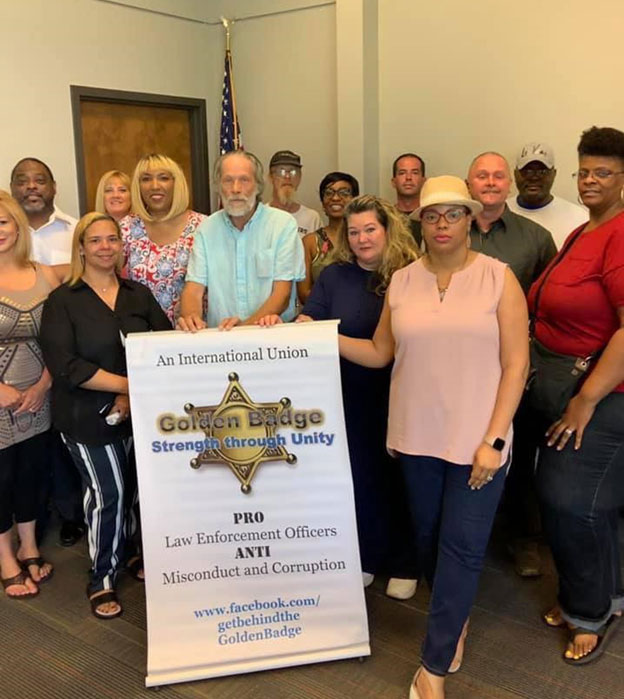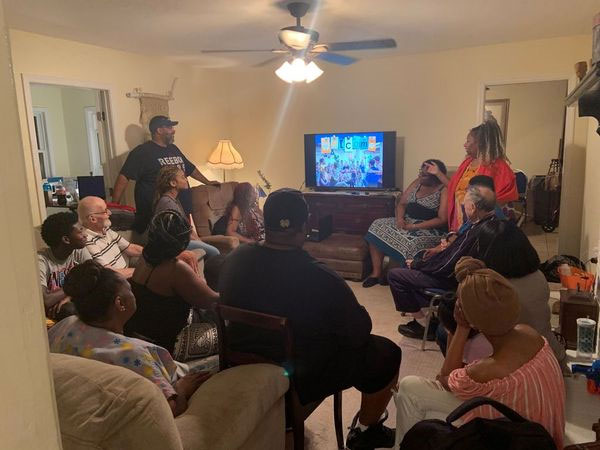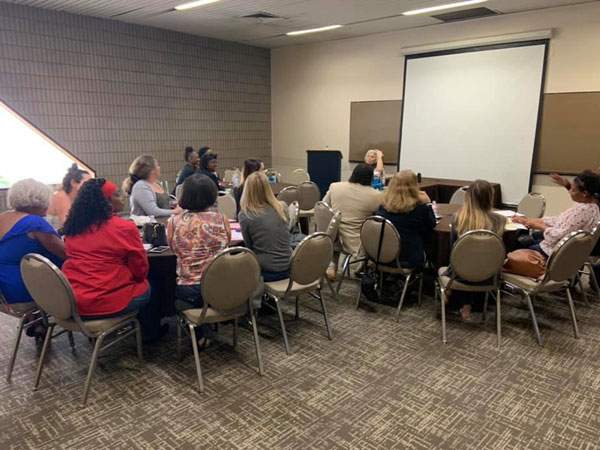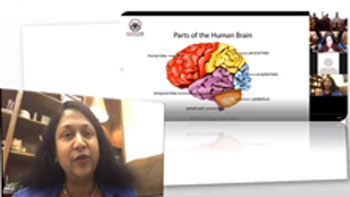Commemorating the 75th Anniversary
of the Universal Declaration of Human Rights
The Council of Organizations of the United Nations Association (COO) joins the United Nations in celebrating the 75th Anniversary of the world's first pledge to protect human rights through its direct consultative status in 1945 in drawing up the global body - The United Nations. The COO members and its partners have not wavered in our commitment to the United Nations organization.
Prior to 1948, there had been no universal definition of human rights on the international level. The 18-member Human Rights Commission, chaired by former First Lady Eleanor Roosevelt, drafted the Universal Declaration of Human Rights which was adopted on December 10, 1948, a milestone in protecting men and women. We express gratitude for the brilliant team that framed the debate and culminated revolutionary changes in international politics and the UN's greatest achievement was the emergence from colonialism - The Universal Declaration of Human Rights often featured in declarations of independence as new nations were created in Asia and Africa. The 1968 World Conference on Human Rights approved 20 resolutions to mark the 20th anniversary of the Universal Declaration.
Today, we are devoted to protecting the brotherhood of humanity and guarding human rights. That is ambitious and crucial today. With the UN demonstrating an ever-increasing interest in working with civil society and NGOs, the Council of Organizations plays a critical role in offering opportunities for leaders from the NGO community to develop partnerships with the UN and each other. The 17 UN Sustainable Goals address human rights issues directly and focus on Equality, Freedom and Justice for All. The genuinely supportive and collaborative environment in which we work to bring about change and Human Rights For All engages our members in action to ratify the Convention on the Elimination of All Forms of Discrimination Against Women (CEDAW) and combat human trafficking in our community, in every city and state and beyond. We pledge our partners to step up efforts to end human trafficking.
One of the 17 Sustainable Development Goals established by the United Nations in 2015, the official wording is: “Promote peaceful and inclusive societies for sustainable development, provide access to justice for all and build effective, accountable and inclusive institutions at all levels“. The Goal has 12 targets to be achieved by 2030. Progress towards targets will be measured by 23 indicators.
Outcome Targets
The goal has ten “outcome targets”. They are:
- Reduce violence
- Protect children from abuse, exploitation, trafficking and violence
- Promote the rule of law and ensure equal access to justice
- Combat organized crime and illicit financial and arms flows
- Substantially reduce corruption and bribery
- Develop effective, accountable and transparent institutions
- Ensure responsive, inclusive and representative decision-making
- Strengthen the participation in global governance
- Provide universal legal identity
- Ensure public access to information and protect fundamental freedoms
Means of Achieving Targets
There are two “means of achieving targets”:
- Strengthen national institutions to prevent violence and combat crime and terrorism
- Promote and enforce non-discriminatory laws and policies
Reducing violent crime, sex trafficking, forced labor, and child abuse are clear global goals. The International Community values peace and justice and calls for stronger judicial systems that will enforce laws and work toward a more peaceful and just society.
RESOLUTION TO END HUMAN TRAFFICKING
July 30, 2023
Leonard (Jamie) Snyder, Attorney
City of Carbondale
Dear Mr. Snyder,
I appreciate the time you took to meet with me during July which is “Human Trafficking World Awareness Month”. July 30th is World Day Against Human Trafficking in Persons. Thank you for listening to my appeal to draft and adopt a resolution to end human trafficking in our City of Carbondale. This is an opportunity for our City Council under the leadership of Mayor Carolin Harvey to think globally and act locally as we chart the path ahead and the resolution clauses would serve as a model for other cities in Illinois and throughout the U.S. Our City of Carbondale will be taking action in our community to build a world that honors the dignity of every person. Every person wants dignity, craves dignity and seeks it.
As you know, the United Nations is an intergovernmental organization and its six main bodies – the General Assembly, the Security Council, the Economic and Social Council, the Trusteeship Council, the International Court of Justice, and the UN Secretariat – were all established under the United Nations Charter when the Organization was founded in 1945.
The UN Charter includes a pledge to promote respect for the human rights of all. To honor this commitment, the UN created a Commission on Human Rights, chaired by Eleanor Roosevelt, to draft a document spelling out the fundamental rights and freedoms proclaimed in the Charter. On December 10, 1948, the Universal Declaration of Human Rights was adopted by a unanimous vote of 56 member States of the U.N. General Assembly, although with eight abstentions.
Referred to as the most important international document of the twentieth century after the UN Charter itself, which was created on October 24th, 1945, the Universal Declaration of Human Rights (UDHR) is the taproot of all human rights declarations and conventions thereafter.
Human rights are the basic freedoms and protections that all people are entitled to, just because they are human beings. These rights cannot be granted or revoked by governments, religions or other institutions. Human rights are: universal: they belong to everyone; inherent: everyone is born with them; inalienable: they cannot be taken away; indivisible: they are all of equal importance; essential: they are necessary for freedom, justice, and peace.
I invite you to visit the UN website (https://www.un.org/) and also review the enclosed copy of “PPOTOCOL TO PREVENT, SUPPRESS AND PUNISH TAFFICKING IN PERSONS, ESPECIALY WOMEN AND CHILDREN, SUPPLEMENTING THE UNITED NATIONS CONVENTION AGAINST TRANSNATIONAL ORGANIZED CRIME” issued by the United Nations in 2000. In order to establish mechanisms for enforcing UDHR, the UN Commission on Human Rights drafted two treaties which are legally binding on those nations that have ratified them: International Covenant on Civil and Political Rights (ICCPR) and its optional protocol and International Covenant on Economic, Social and Cultural Rights (ICESCR) . These two Conventions and the UDHR are now referred to as the International Bill of Rights.
Human trafficking is a form of modern-day slavery. Millions of people worldwide live and suffer in slave-like situations. According to the UN, human trafficking is ranked as the third greatest revenue source of organized crime, just after narcotics, and arms. While the U.S. Department of State estimates that 800,000 to 900,000 people are trafficked across borders annually, the UN Population Fund and many other organizations taking the lead to eradicate trafficking put the number above 3 million. Adding domestic trafficking to those numbers, which is defined as people trafficked within the borders of one nation, the number reaches almost 4 million persons trafficked per year!
Trafficked victims are often deceived, forced or coerced into vulnerable situations that make it easy for the traffickers to hold them in forced labor and in slavery. The overwhelming majority of victims of trafficking are women. They are often also victims of war, poverty, discrimination, and violence. Human traffickers use disaster situations to take advantage of vulnerable survivors. Children face heightened risk of human trafficking. One third of all victims of human trafficking are children, who face a heightened risk of forced marriage, sexual exploitation and other abuses.
The UNA-USA Council of Organizations (COO) plans to celebrate the 75th anniversary of the Universal Declaration of Human Rights in New York on October 24th, which is United Nations Day. I serve on the COO board of directors as Chair of the Human Rights Committee. It would be an honor and a privilege to showcase our City of Carbondale for its active engagement in drafting and adopting the resolution to combat human trafficking.
Although human rights belong to everyone, they are vulnerable to abuse and must be defended to maintain them. I want to express my deep gratitude to you, our Mayor Carolin Harvey, our City Manager Gary Williams, and our City Council members for your collaborative efforts to take action on human trafficking and thus strengthen our community. I look forward to hearing from you.
Sincerely,
Olga Weidner, Chair of Human Rights Committee
UNA-USA Council of Organizations
NJCDLP Flagship Programs / Projects



COO co-sponsored human rights events

Pictured is Dr. Kalyani Gopal of SAFE Coalition for Human Rights. She addressed what’s called “America’s foster care to homelessness / human trafficking/prison/solitary confinement pipeline” and characterized it as a human rights crisis that’s not adequately redressed by domestic legal and/or political systems.
